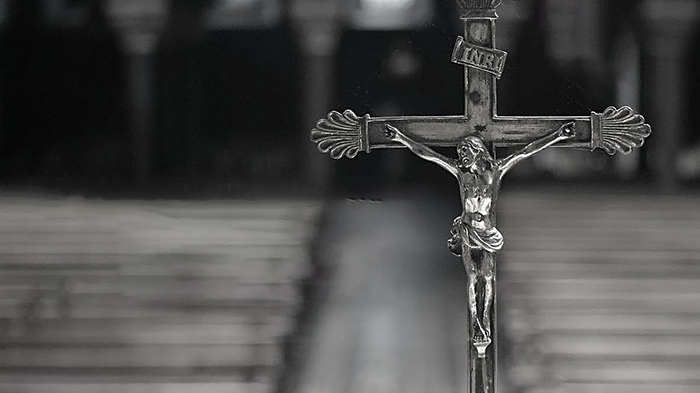
When the Romans designed crucifixion as their means of capital punishment, they had more in mind than simply putting someone to death. They wanted to accomplish something else, too, namely, to make this death a spectacle to serve as the ultimate deterrent so that anyone seeing it would think twice about committing the offense for which the person was being crucified. Perhaps most cruel of all, crucifixion was designed to utterly humiliate the body of the person being executed. So, the person was stripped naked, his private parts unprotected, and when his body went into spasms, as surely it eventually would, his bowels would release, all in public view. Is there a humiliation worse than this? Fr. Rolheiser writes that there are, in his view, human sufferings that approximate or equal that. There are daily instances of violence in our world – domestic violence, sexual violence, torture, heartless bullying, and the like – which mirror the humiliation of the cross. As well you sometimes see this kind of humiliation of the body in death by cancer and other such debilitating diseases. The person here doesn’t just die; she dies in pain, her body humiliated, its dignity compromised, that immodesty exposed, as it was for Jesus when dying on the cross. Nothing, absolutely nothing, pushes us to a depth of heart and soul, as does humiliation. Drinking the cup of humiliation, accepting the cross, is, according to Jesus and according to what’s most honest in our own experience, what can bring us genuine glory, namely, depth of heart, depth of soul, and depth of understanding and compassion. Humiliation will make us deep, but it might not make us deep in the right way. It can also have the opposite effect. Like Jesus, we will all suffer humiliation in life; we will all drink the cup, and it will make us deep, but then we have a critical choice: Will this humiliation make us deep in compassion and understanding, or will it make us deep in anger and bitterness? That is, in fact, the ultimate moral choice we face in life – not just at the hour of death but countless times in our lives. Good Friday and what it asks of us confront us daily.
